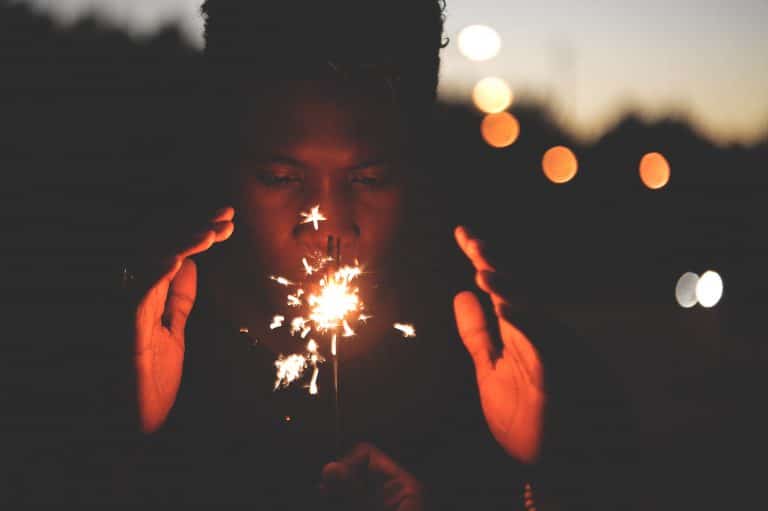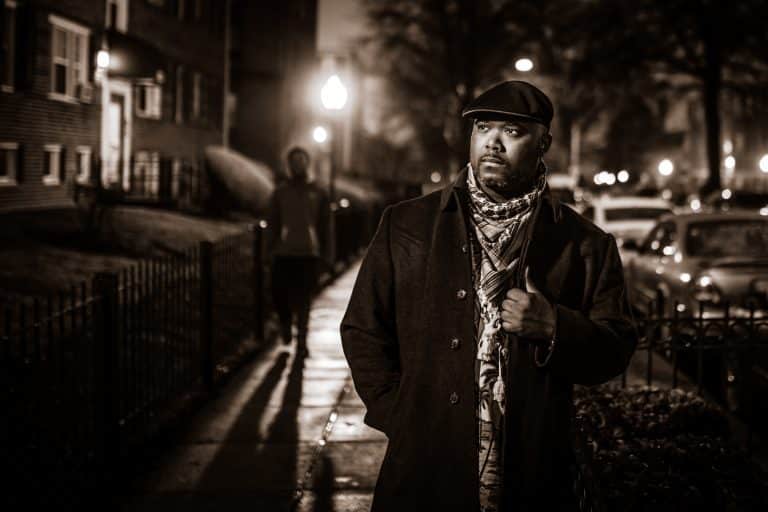
Image by Rui Silvestre, Public Domain Dedication (CC0).
Remembering Philando Castile on My Birthday
On July 6, 2016, a black man in Falcon Heights, Minnesota was stopped and shot several times at a traffic light. His name was Philando Castile. Philando and his girlfriend, Diamond Reynolds, were driving home with their four-year-old daughter, when they were pulled over by St. Anthony police officer, Jeronimo Yanez. It should have been a normal traffic stop, but it wasn’t. Within 40 seconds of pulling them over, Yanez pulled out his gun and fired into Philando’s car, as Reynolds streamed the tragic event on Facebook Live.
In a conference room, thousands of miles away, I watched the horrific video in silence — my eyes red from holding back tears. It was my 22nd birthday. I was miles away from my home on the East Side of St. Paul, at a leadership conference in Montréal.
Watching the live video, I was struck by Castile’s candor in dealing with Officer Yanez, but as a black man in America, I knew that death was at his window. This was a familiar scene for black Americans, who, like myself, have grown accustomed to viewing videos of unarmed black men, women, children, and LGBTQ-identifying persons be harassed and killed by law enforcement, or in the case of Trayvon Martin, fearful Americans.
I was the same age as Trayvon, 17, when he was shot and killed by George Zimmerman in Sanford, Florida. I was two years older than Mike Brown, when he was gunned down in the streets of Ferguson, Missouri — his lifeless body left lying on the pavement in the hot sun. That same year, Tamir Rice, a 12-year-old boy, was murdered for playing with a toy gun in Cleveland, Ohio. During these formative years of my life, I was enraged at the senseless murders of my black kin, and I questioned if I, or my close group of black male friends, would be next.
I also grew frustrated that mainstream media never accurately narrated what happened, preferring instead to leave the American public debating whether or not black lives mattered. Whenever a black person is murdered by law enforcement, there is always some level of doubt that the black victim wasn’t a victim at all — that somehow they were to blame for their own death.
There was no justification for Philando’s death. Should he have told Officer Yanez, that he had a gun? In hindsight, maybe not, but why should that matter? He did the responsible thing — what any black person trying to prevent a potential hostile situation would have done. Should Philando have chopped off his hair to avoid resembling the thieves that stole from a nearby Falcon Heights store, just a few days prior? No, because black people shouldn’t have tone down their blackness out of fear that they will be racially profiled. No matter which way you look at it, Philando Castile did nothing wrong.
I’d always been curious about people whose birthday falls on the same day as a national tragedy. Do they reflect in the morning and celebrate at night, or reflect in the evening and celebrate during the day? Do they move the partying to a later date to honor the victims? On birthdays, we’re expected to be joyous; thankful for making it to another year, reflective of all that we’ve accomplished and contemplative about the year ahead. On my 22nd birthday, I watched Philando be murdered live from my computer screen, just miles from my home on the East Side. When my birthday became akin with the murder of an innocent black man, I had to ask myself: How do I celebrate my birthday, when it’s been marked by death?
On that fated day in 2016, I was unable to participate as my fellow brothers and sisters organized peaceful demonstrations against police brutality. From a conference room in Montréal, I prayed silently for Philando’s family and friends. I prayed for my state, which had once again erupted in chaos, just eight months after Jamar Clark, another black man, was shot and killed in North Minneapolis. I prayed for the safety of black lives everywhere because black life is not a given, it’s a blessing.
This year on July 6th, it will be my 24th birthday and two years since Philando Castile was taken from us. I still don’t know how I will honor Philando, but I offer this poem, titled, “Freedom,” to all the victims of police brutality and the countless black lives taken far too soon:
Freedom
by Jeffrey BissoyThere I was, lying on the ground,
Blood spilling on the floor from the fresh bullet wound.
As I laid on the cold, hard concrete, a crowd soon emerged.
Neighbors that have learned to keep their mouths shut in the face of adversity surrounded me.From the mass, a frail woman pushed and shoved her way towards the front.
At the sight of this woman, the community slowly opened up to let her pass.
As she took strides towards the body, her heart started to beat faster and faster,
As she inched towards the body, tears trickled down her face, as she remembered When she held her baby for the very first time.After tireless pushing and screaming, the doctor presented her the baby and asked, “What will name your newborn son?” and she said, “Freedom.”
As she knelt down to caress my brown, lifeless body, she cried out:
“Freedom!! Freedom…Why lord? Why? Why my baby?”At the sound of my mother’s cries, I longed to re-enter my body.
I longed to hold and comfort her, like I only I could.
I wished to whisper in her ear one last time, “I love you, momma.”
Momma, you told me to be careful when I’m out at night and I betrayed you.
Momma, you taught me when I’m questioned to lower my voice,
And swallow my pride, and I defied you.Many people will tell you my story and many people will tell it wrong.
I wish I could tell you my own story, but it is no longer mine to tell.
I was walking while black, when I was racially profiled and shot by two white police Officers, who claimed I stole from the corner store down the street.As I’m being called to leave, don’t mourn me long momma.
I’ve finally attained the freedom I was destined for.
